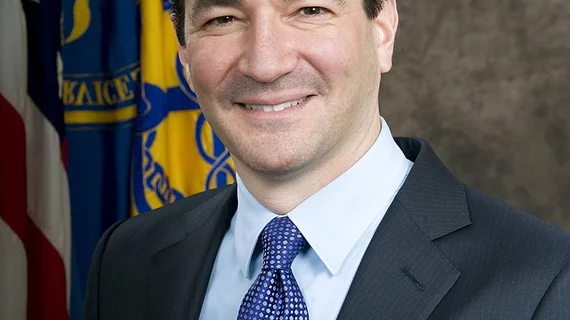ASCO 2018: FDA’s Gottlieb wants to streamline cancer patients’ access to treatments
FDA Commissioner Scott Gottlieb, MD, delivered the opening remarks at the American Society of Clinical Oncology’s 2018 annual meeting at McCormick Place in Chicago, emphasizing his organization’s goal of reducing the time needed to connect cancer patients with treatment.
“[W]e are at a unique moment, a singular point in time, where we can bring to patients battling cancer—now or in the future—advances that’ll quite literally alter the trajectory of their lives,” he said.
Gottlieb pointed to clinical trials that are overwhelmingly unsuccessful—driving up costs while pharmaceutical companies spend time and resources running down dead ends.
“The irony is that even with broad exclusion criteria, oncology trials still have a staggering failure rate,” he said. “One recent study led by researchers at MIT found that in 2015, the overall success in cancer trials was only 8.3 percent, up from just 3.4 percent in 2005. High failure rates contribute to industry’s high cost of drug development, putting upward pressure on drug prices.”
Gottlieb also noted what he sees as another factor in costs: monopolies and the resulting lack of competition.
“It also reduces the amount of competition new drugs face in different drug categories. Too often, being first to market means being the only one on the market for a long time.”
But Liz Barrett, former global president of oncology at Pfizer, didn’t see such a problem with competition.
“I think we’re in an era where we make the assumption that there’s going to be competition. Even if you get breakthrough therapy designation, that doesn’t stop another medicine in the same class from getting breakthrough therapy,” Barrett said, in an interview with Reuters.
Gottlieb also announced two new FDA pilot programs. One aims to improve submissions on the most relevant data for measuring safety and efficacy, with the goal of improving efficiency in addressing drug applications. The second will focus on a voluntary submission form from applicants, allowing them to submit their own assessment which the FDA will annotate.
Gottlieb’s full remarks can be seen here.

